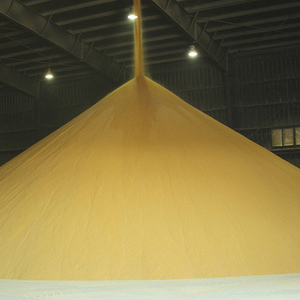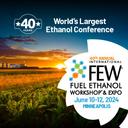DDGS study published, shows low antibiotic concentrations

August 9, 2013
BY Holly Jessen
The results of a study on antibiotic residues in distillers grains has been published in the Journal of Animal Science. It concluded that 12.6 percent of the distillers grains samples contained low antibiotic concentrations that were biologically inactive and only one sample inhibited growth of E. Coli. “The inhibition in only one distillers grains (DG) sample by sentinel bacteria suggests that antibiotic residues in DG were inactivated during the production process or are present in sublethal concentrations,” the manuscript’s abstract said.
The study was completed in 2012 and was featured in an August 2012 Ethanol Producer Magazine story called “Testing for Traces.” It was conducted by six researchers from the University of Minnesota Department of Animal Sciences, the U of M Extension Service and the Department of Food Science and Nutrition and one person from SGS North America Inc. Funding for the study was provided by the Minnesota Corn Research and Promotion Council.
In all, 159 samples were collected, including 80 samples of dry distillers grains and 79 samples of wet distillers grains. The majority of the antibiotic residues were found in the dry distillers grains, with 21.3 percent of the samples containing antibiotic residues. On a dry matter basis, 3.8 percent of the wet distillers grains samples contained antibiotic residues.
Researchers pointed out that the samples with antibiotic residues contained low concentrations that were “well below dietary concentrations of current FDA-approved antibiotic for finishing livestock and poultry feeds.” The lack of bacterial inhibition in the samples was due to antibiotic inactivation, researchers said. Conditions of ethanol production, including low pH values of distillers grains and high temperatures reached during fermentation, distillation and distillers grains drying, may have contributed to the inactivation.
Advertisement
Advertisement
Advertisement
Advertisement
Related Stories
Ethanol Producer Magazine has announced the keynote speakers for the 2025 International Fuel Ethanol Workshop & Expo (FEW) being held June 9-11, 2025, at the CHI Health Center in Omaha, Nebraska. The general session will take place June 10.
Argent Energy, a leading European biofuels manufacturer, has officially launched Europe’s largest facility dedicated to producing biobased, technical-grade glycerin at its Port of Amsterdam site in the Netherlands.
Preliminary agenda released for 40th annual International Fuel Ethanol Workshop & Expo
Ethanol Producer Magazine announced this week the preliminary agenda for the 2024 International Fuel Ethanol Workshop & Expo (FEW) taking place June 10-12, 2024 at the Minneapolis Convention Center in Minneapolis, Minnesota.
A University of Alberta researcher has developed better ways to convert carbon dioxide, a harmful greenhouse gas, and glycerol, a leftover of biodiesel production, into value-added materials with wide-ranging uses including liquid hydrogen storage.
A group of some of the largest shrimp producers in Ecuador recently attended the Distillers Grains Technology Council's Distillers Symposium in Iowa with the USGC. The event provided an overview of the U.S. distillers’ industry.
Upcoming Events










